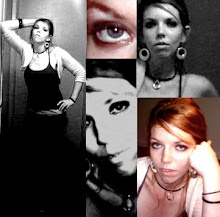It’s easy to write-off individuals who dispute the logic or validity of paranormal or religious phenomena as cynics who reject every scrap of evidence because they want to disbelief. Again, that assumes several points that aren’t proven. 1) the individuals who disbelief do so because they want to and 2) that anyone who disagrees with ‘evidence’ does so because they don’t believe (but a lot of these people aren’t really into proving things anyways so…) . I don’t necessarily disbelief in the idea of ghosts (I don‘t necessarily believe in them either). I haven’t arrogantly condemned it as impossible (it isn’t). My only real statement is that I see no evidence, as of yet, to persuade me to believe that ghosts are real and that the evidence (or lack of it) will ultimately inform my decision.
(The real definition of skepticism is “an attitude marked by a tendency to doubt what others accept to be true”. BTW: doubt is defined “to feel unconvinced or uncertain about something, or think that something is unlikely”. Neither of those definitions translate to the nigh-religious denial zeal that’s conjured up when ‘believers’ use the word skeptic. When somebody has absolutely no REAL evidence… well that’s not very convincing is it? So how could one help but feel uncertain?)
I take no particular joy in poking holes in other peoples theories. I don’t even object to the idea of paranormal investigation. What I object to is the notion of certainty when there isn’t any, and selling that certainty to others for a tidy profit. Everyone should be a skeptic where matters of the paranormal are concerned. That’s a sweeping statement, but think about it. All of the hypotheses advanced by TAPS are riddled with contradictions and errors in reasoning. Even if they weren’t riddled with flaws, they would still only be hypotheses.
( The definition of hypothesis is: “a tentative explanation for a phenomenon, used as a basis for further investigation”. A hypothesis is not a definitive conclusion.)
Personal experience is often sighted by ghost believers. “I know what I’ve seen.” But do you? Even if I had seen a ghost I couldn’t be 100% sure of what I’d seen. Anyone is capable of hallucinating, myself included. How could I possibly rule it out? If were 99.9% certain I had seen a ghost, some small marginal part of my psyche would have to acknowledge that, however unlikely, I may have hallucinated my experience. Even if someone else claimed to have the exact same experience/hallucination I had, how could I be sure? One of us would have to tell the other one detail or another first in order for it to be confirmed as the same experience. How could I be 100% sure they weren’t simply agreeing?
I have never seen a ghost, in spite of the fact that I’m quite enthusiastic about chasing them down. The going theory regarding why I am not able to see ghosts in locations where numerous other individuals have had encounters is because I don’t believe in ghosts. What are they now? Pixies? The fact is that the existence of real things is not contingent upon the belief of would-be spectators. Real things exist independently of belief and there is absolutely no reason to think ghosts would be an exception… unless, of course, they aren’t real.
(For those of you who are curious… real is defined as “1) having actual physical existence 2) verifiable as actual fact e.g. legally or scientifically 3) existing as fact, rather than as the product of dreams or the imagination”)
Thursday, July 23, 2009
Subscribe to:
Post Comments (Atom)



0 comments:
Post a Comment